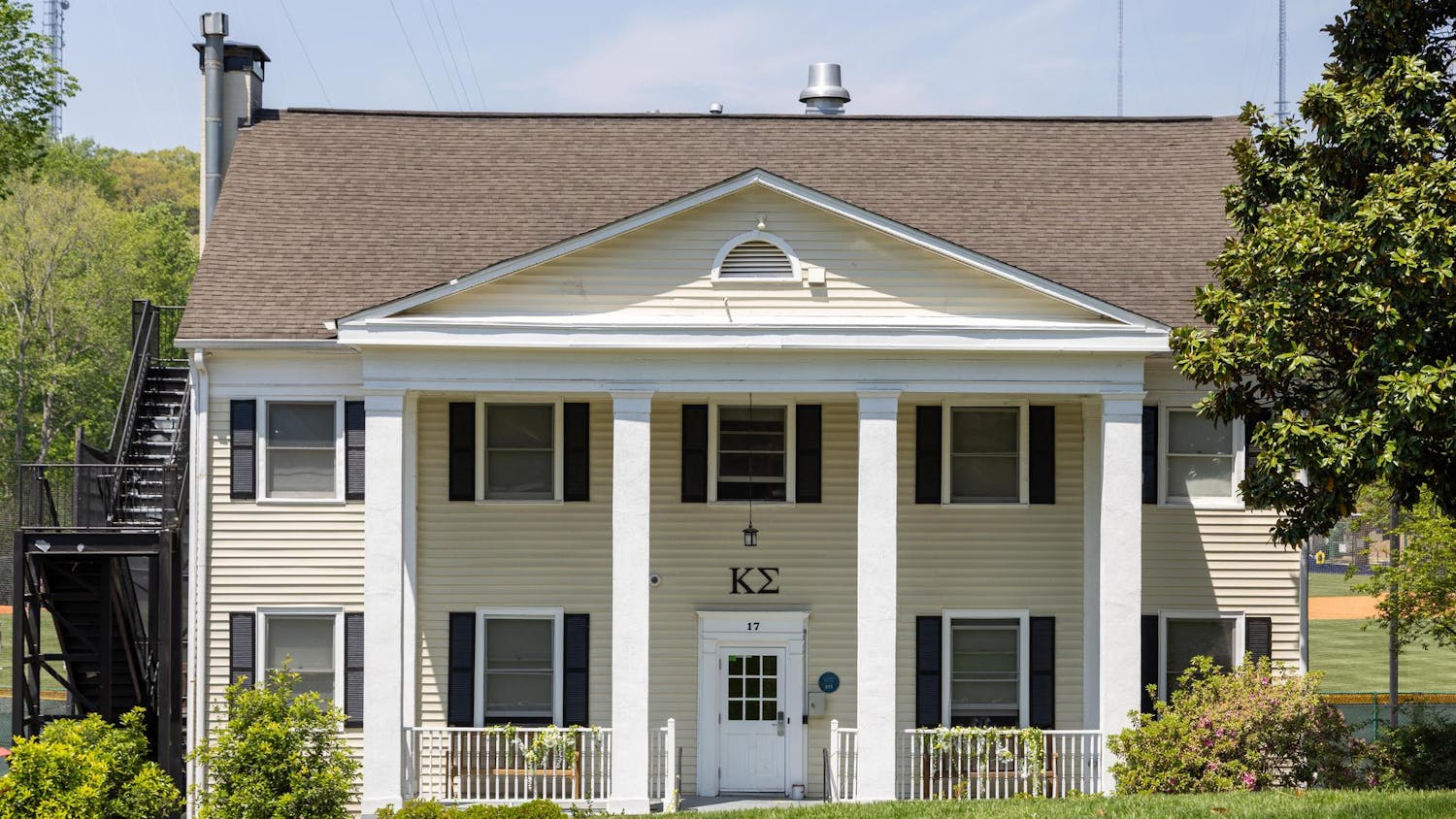Nationwide and at Emory, many Greek life members are upset with the way they are perceived and treated. A discontentment has arisen because Greek communities’ are facing severe criticism and the defenses provided by Greek leadership don’t align with members expectations.
In my experience, people join Greek organizations because they relate to the culture and community of said organization. The close social ties, allegiance to a larger entity and emphasis on brotherhood and sisterhood appease the human need to belong.
As the 1960s student movements took hold of campus, Greek life became a home for people who identified with different cultural values, like patriotism and a respect for inherited customs, than the student movements, or simply those who didn’t wish to participate in political activism.
That is why Total Frat Move’s “Reagan Bush ‘84” and “Back to Back WWII Champs” T-shirts have become Greek life icons. A University of Iowa study found that “fraternity men indicated they were less politically active than college students overall.”
In recent years, a new wave of campus activism arose, reflecting the 1960s movements in tone and style but focused on ending racism, sexism and sexual assault on campus. These new activists are particularly hard on people who disagree with them.
For example, the 2015 Amherst Uprising protests demanded that any students who posted “All Lives Matter” posters should be “required to attend extensive training for racial and cultural competency.”
On many campuses, activists targeted Greek life. The large, diverse Greek system has been pursued as a perpetrator of the ills activists wish to cure based on a poor understanding of the system, a difference in cultural values and a few shocking incidents, such as the infamous incident in which the University of Oklahoma Sigma Alpha Epsilon chapter was recorded signing a racist chant on a bus.
University of Washington students planned a “check your privilege” party, the Facebook description of which read “the frats have repeatedly attacked us … they have said black lives don’t matter; they have raped us and called us sluts and liars.”
“Across the country, students of color have increasingly been drawing attention to racist climates on their college campuses through protests, occupations and other activism,” policy reporter Casey Quinlan writes. “And as the media attention on these issues has ramped up, so has the focus on what exactly fraternities’ roles are in the campus culture.”
Universities could not fully ignore the demands of these new activists, so they compromised. For example, Emory created social justice week, which encourages students to “be a warrior,” but made few structural changes.
Emory didn’t get rid of Greek life. But they cracked down on it significantly, giving Greek organizations the same kind of Star Chamber treatment that many students accused of sexual assault received despite the protests of Greek students and alumni.
National organizations and some Emory administrators reacted to that situation by downplaying the communal and cultural aspects of Greek life, and instead attempted to portray fraternities and sororities as achievement clubs.
“The Rhodes Scholar is not going to walk into your party on Eagle Row,” Director of Sorority and Fraternity Life Marlon Gibson said in a March 22 Wheel article.
Institutions meant to defend Greek organizations, such as IFC’s and national organizations, have to some extent agreed with the diagnoses of the protesters, instead of pushing back against them.
“The Greek community has come a long way from where it was decades ago, but that doesn’t mean there isn’t still room to improve,” said Nate Stockman, president of the Interfraternity Council (IFC) at the University of Washington, after the Check Your Privilege day.
I have yet to meet someone who joined a Greek organization with the desire to become a part of a racist, sexist organization with the goal of committing sexual assault, and yet when those or other negative charges are leveled at Greek organizations, Greek leaders rarely give the kind of vocal rejection their members would like to hear.
Interestingly, there are some pro-Greek protests happening around the country. Greek students at Penn State held such a demonstration March 30 in response to strict new sanctions recently imposed by the administration and Interfraternity Council in response to a recent student death.
Greek organizations as cultural and communal institutions are very important to the people in them. People outside the Greek system should view it with more understanding; people inside should fight back.
Duncan Cock Foster is a College Senior from Seattle, Wa.
Read More
Trending









